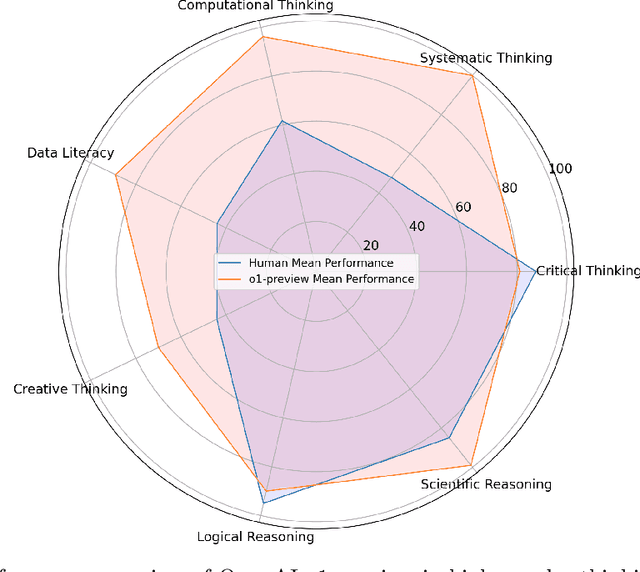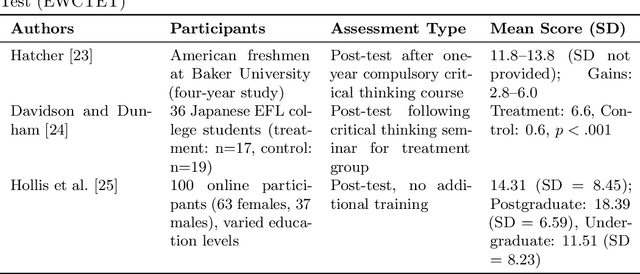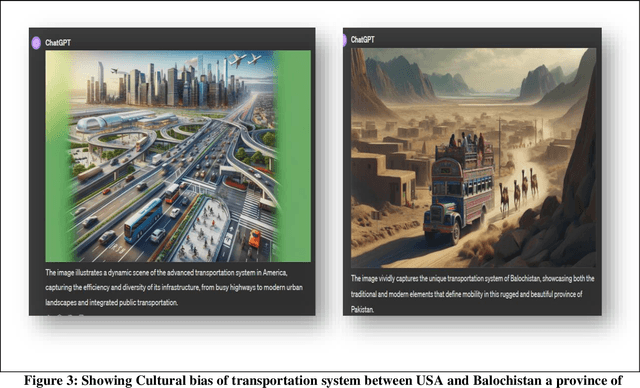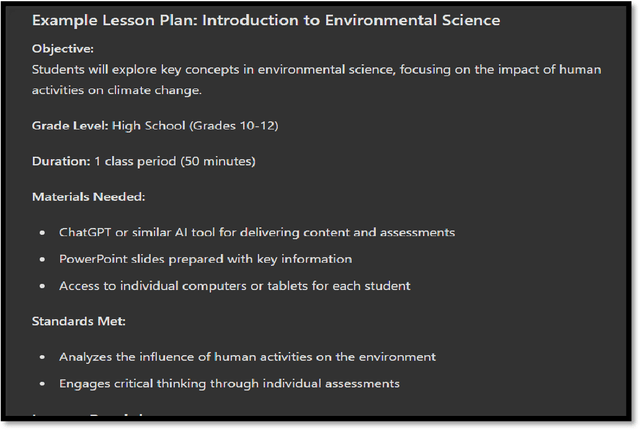Matthew Nyaaba
Human-AI Collaborative Inductive Thematic Analysis: AI Guided Analysis and Human Interpretive Authority
Jan 17, 2026Abstract:The increasing use of generative artificial intelligence (GenAI) in qualitative research raises important questions about analytic practice and interpretive authority. This study examines how researchers interact with an Inductive Thematic Analysis GPT (ITA-GPT), a purpose-built AI tool designed to support inductive thematic analysis through structured, semi-automated prompts aligned with reflexive thematic analysis and verbatim coding principles. Guided by a Human-Artificial Intelligence Collaborative Inductive Thematic Analysis (HACITA) framework, the study focuses on analytic process rather than substantive findings. Three experienced qualitative researchers conducted ITA-GPT assisted analyses of interview transcripts from education research in the Ghanaian teacher education context. The tool supported familiarization, verbatim in vivo coding, gerund-based descriptive coding, and theme development, while enforcing trace to text integrity, coverage checks, and auditability. Data sources included interaction logs, AI-generated tables, researcher revisions, deletions, insertions, comments, and reflexive memos. Findings show that ITA-GPT functioned as a procedural scaffold that structured analytic workflow and enhanced transparency. However, interpretive authority remained with human researchers, who exercised judgment through recurrent analytic actions including modification, deletion, rejection, insertion, and commenting. The study demonstrates how inductive thematic analysis is enacted through responsible human AI collaboration.
Can OpenAI o1 outperform humans in higher-order cognitive thinking?
Dec 07, 2024



Abstract:This study evaluates the performance of OpenAI's o1-preview model in higher-order cognitive domains, including critical thinking, systematic thinking, computational thinking, data literacy, creative thinking, logical reasoning, and scientific reasoning. Using established benchmarks, we compared the o1-preview models's performance to human participants from diverse educational levels. o1-preview achieved a mean score of 24.33 on the Ennis-Weir Critical Thinking Essay Test (EWCTET), surpassing undergraduate (13.8) and postgraduate (18.39) participants (z = 1.60 and 0.90, respectively). In systematic thinking, it scored 46.1, SD = 4.12 on the Lake Urmia Vignette, significantly outperforming the human mean (20.08, SD = 8.13, z = 3.20). For data literacy, o1-preview scored 8.60, SD = 0.70 on Merk et al.'s "Use Data" dimension, compared to the human post-test mean of 4.17, SD = 2.02 (z = 2.19). On creative thinking tasks, the model achieved originality scores of 2.98, SD = 0.73, higher than the human mean of 1.74 (z = 0.71). In logical reasoning (LogiQA), it outperformed humans with average 90%, SD = 10% accuracy versus 86%, SD = 6.5% (z = 0.62). For scientific reasoning, it achieved near-perfect performance (mean = 0.99, SD = 0.12) on the TOSLS,, exceeding the highest human scores of 0.85, SD = 0.13 (z = 1.78). While o1-preview excelled in structured tasks, it showed limitations in problem-solving and adaptive reasoning. These results demonstrate the potential of AI to complement education in structured assessments but highlight the need for ethical oversight and refinement for broader applications.
Generative AI and Digital Neocolonialism in Global Education: Towards an Equitable Framework
Jun 06, 2024



Abstract:This paper critically discusses how generative artificial intelligence (GenAI) might impose Western ideologies on non-Western societies, perpetuating digital neocolonialism in education through its inherent biases. It further suggests strategies for local and global stakeholders to mitigate these effects. Our discussions demonstrated that GenAI can foster cultural imperialism by generating content that primarily incorporates cultural references and examples relevant to Western students, thereby alienating students from non-Western backgrounds. Also, the predominant use of Western languages by GenAI can marginalize non-dominant languages, making educational content less accessible to speakers of indigenous languages and potentially impacting their ability to learn in their first language. Additionally, GenAI often generates content and curricula that reflect the perspectives of technologically dominant countries, overshadowing marginalized indigenous knowledge and practices. Moreover, the cost of access to GenAI intensifies educational inequality and the control of GenAI data could lead to commercial exploitation without benefiting local students and their communities. We propose human-centric reforms to prioritize cultural diversity and equity in GenAI development; a liberatory design to empower educators and students to identify and dismantle the oppressive structures within GenAI applications; foresight by design to create an adjustable GenAI system to meet future educational needs; and finally, effective prompting skills to reduce the retrieval of neocolonial outputs.
Multimodality of AI for Education: Towards Artificial General Intelligence
Dec 12, 2023

Abstract:This paper presents a comprehensive examination of how multimodal artificial intelligence (AI) approaches are paving the way towards the realization of Artificial General Intelligence (AGI) in educational contexts. It scrutinizes the evolution and integration of AI in educational systems, emphasizing the crucial role of multimodality, which encompasses auditory, visual, kinesthetic, and linguistic modes of learning. This research delves deeply into the key facets of AGI, including cognitive frameworks, advanced knowledge representation, adaptive learning mechanisms, strategic planning, sophisticated language processing, and the integration of diverse multimodal data sources. It critically assesses AGI's transformative potential in reshaping educational paradigms, focusing on enhancing teaching and learning effectiveness, filling gaps in existing methodologies, and addressing ethical considerations and responsible usage of AGI in educational settings. The paper also discusses the implications of multimodal AI's role in education, offering insights into future directions and challenges in AGI development. This exploration aims to provide a nuanced understanding of the intersection between AI, multimodality, and education, setting a foundation for future research and development in AGI.
Artificial General Intelligence (AGI) for Education
Apr 24, 2023Abstract:Artificial general intelligence (AGI) has gained global recognition as a future technology due to the emergence of breakthrough large language models and chatbots such as GPT-4 and ChatGPT, respectively. AGI aims to replicate human intelligence through computer systems, which is one of the critical technologies having the potential to revolutionize the field of education. Compared to conventional AI models, typically designed for a limited range of tasks, demand significant amounts of domain-specific data for training and may not always consider intricate interpersonal dynamics in education. AGI, driven by the recent large pre-trained models, represents a significant leap in the capability of machines to perform tasks that require human-level intelligence, such as reasoning, problem-solving, decision-making, and even understanding human emotions and social interactions. This work reviews AGI's key concepts, capabilities, scope, and potential within future education, including setting educational goals, designing pedagogy and curriculum, and performing assessments. We also provide rich discussions over various ethical issues in education faced by AGI and how AGI will affect human educators. The development of AGI necessitates interdisciplinary collaborations between educators and AI engineers to advance research and application efforts.
 Add to Chrome
Add to Chrome Add to Firefox
Add to Firefox Add to Edge
Add to Edge